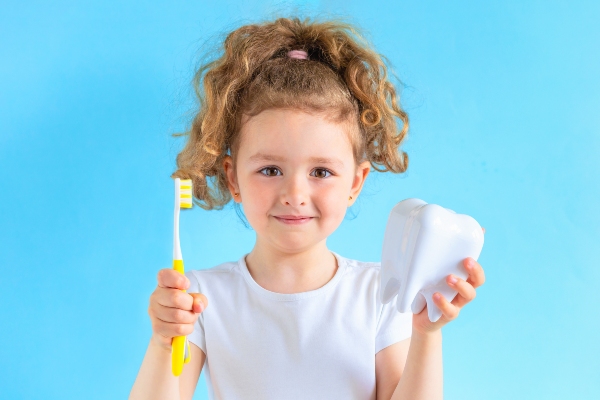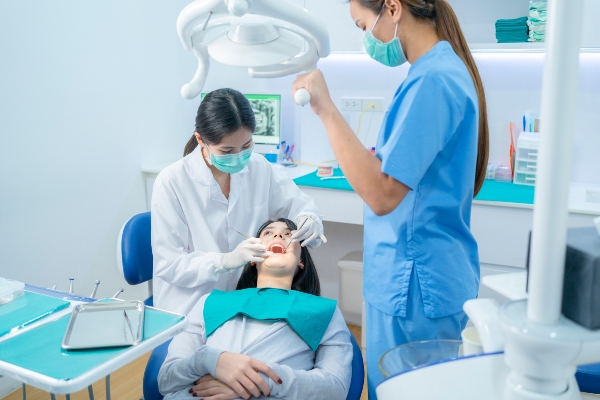 Anyone familiar with oral hygiene basics knows that pediatric dentists recommend brushing twice per day — once in the morning and once at night. However, you may not know why. Why is once not enough? After all, experts recommend flossing only once a day. How is brushing your teeth different? This article will explore why brushing twice per day is best for children and adolescents.
Anyone familiar with oral hygiene basics knows that pediatric dentists recommend brushing twice per day — once in the morning and once at night. However, you may not know why. Why is once not enough? After all, experts recommend flossing only once a day. How is brushing your teeth different? This article will explore why brushing twice per day is best for children and adolescents.
Why your child should brush twice a day
Brushing the teeth is a key part of oral hygiene basics, as it removes plaque that contains bacteria. This bacteria eats away at the teeth and gums, causing cavities and gum disease.
While brushing the teeth once a day is better than not brushing at all, it does not do enough to prevent plaque. Every time a child eats or drinks a beverage that is not water, they introduce more bacteria into the mouth. Twice-daily brushing ensures they remove as much plaque as possible without hurting the gums or enamel (the tooth’s outer layer).
Prevents stains
Certain foods and beverages, such as fruit juices, can stain enamel. These stains build up over time, making one’s smile appear yellow or brown. Regular teeth brushing can remove the offending food or drink to prevent staining.
Fights tartar buildup
When plaque remains on a tooth for too long, it hardens and becomes tartar (calculus). It is not possible to remove tartar through brushing, as regular brushes are not strong enough to do so. The parent will need to take their child to a pediatric dentist for safe and effective tartar removal.
Prevents bad breath
Without brushing, bacteria will remain on the teeth, eating away at the enamel and any food stuck between them. This process will cause bad breath. Brushing clears away that odor-causing bacteria. For fresher breath, patients should brush their teeth regularly rather than chowing down on mints.
Effective brushing techniques for children
How a child brushes their teeth is just as important as how often they do it. For starters, the child should use a soft-bristle brush to avoid hurting the gums. In most cases, soft brushes are stiff enough to remove plaque without causing damage. It is okay to use a hard-bristle brush occasionally to remove stains, but the child must take care not to apply too much pressure.
Brush for two minutes
Dentists recommend brushing for two minutes every single time. Brushing harder does not shorten the time; it takes two minutes to address each tooth thoroughly. Have the child start with the molars and brush every side of each tooth, moving down the line until each one is clean.
Use circular motions
While brushing up and down may feel more natural, the best way to clean the teeth is to move the brush in small, circular motions. This approach is more effective, ensuring the child gets the most out of their two-minute routine.
Learn more about children’s oral hygiene basics
Teaching a child how to take care of their teeth sets them up for a lifetime of good oral health. On the other hand, failing to fight plaque can lead to pain, tooth loss, and expensive dental procedures. If you want to save money and protect your child’s beautiful smile, then it is essential to teach them how to brush their teeth twice a day, every day. For more help with children’s oral hygiene basics, call our office today.
Request an appointment or call Hudson Valley Pediatric Dentistry at 845-363-4177 for an appointment in our Middletown office.
Recent Posts
Having a solid handle on oral hygiene basics will help preserve the integrity of a child's teeth and mouth health for many years to come. Steering clear of cavities, receding gums, or decay ensures their smile is bright and beautiful for as long as possible. If your child believes they already have an excellent oral…
When you and your child visit the dentist, you expect to get your child’s teeth cleaned and learn the current state of their dental health. However, many parents overlook the expertise dentists can provide about the important aspects of oral hygiene basics.In addition to caring for teeth, dentists can offer helpful recommendations for young patients…
In order to maintain your child's healthy teeth and gums, you should follow the oral hygiene basics recommended by a pediatric dentist. These practices, including brushing and flossing, should be done twice and once a day, respectively. However, it is common for children to forget to maintain these habits. Failing to observe oral hygiene basics…


